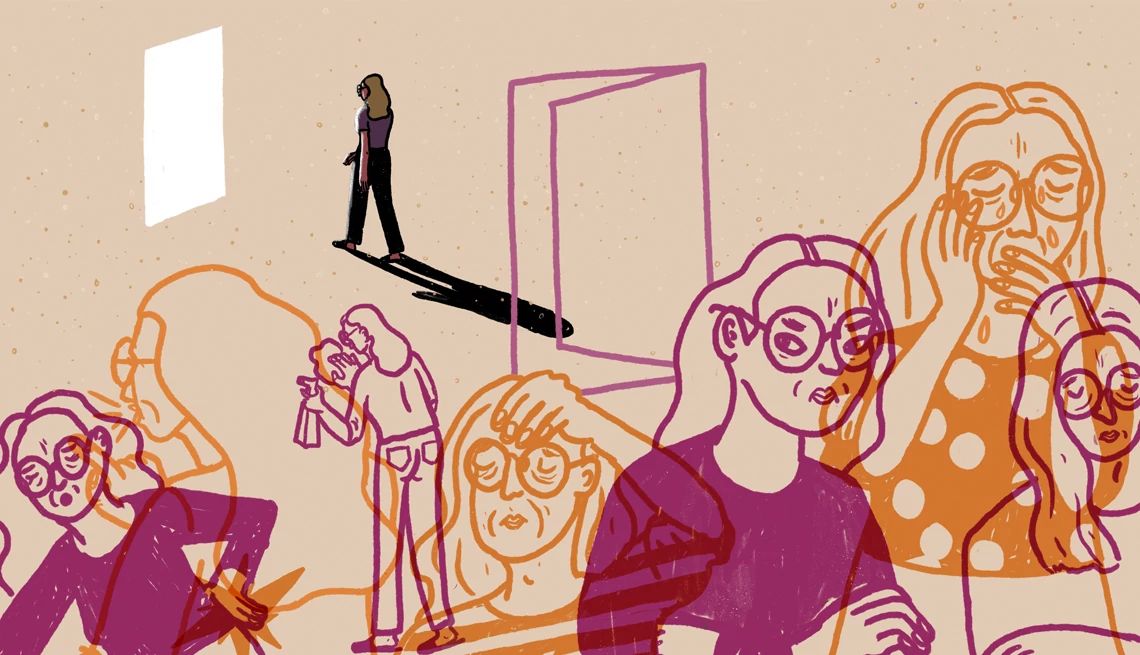AARP Hearing Center


Family caregiving is so much easier to start than to stop.
It can begin with something as simple as making a grocery run for your parents because your dad has a swollen leg. But when the swelling becomes a more serious blood clot that leads to even more worrisome circulation ailments, your one-time grocery run devolves into regular caregiving.
Or when your spouse unexpectedly falls and has to miss work for several days, you stay home from your job and tend to their needs. Doctors later discover the catalyst for the fall was actually a stroke and your caregiving now morphs from occasional help to 24-7 care.
“You get on the train and it feels like there’s no way out,” says Kylie Meyer, assistant professor and codirector of the Case Western Reserve University Center on Aging and Health in Cleveland.
Join Our Fight for Caregivers
Here’s what you can do to support family caregivers:
- Sign up to become part of AARP’s online advocacy network and urge lawmakers to pass legislation to save caregivers time and money.
- Find out more about how we’re fighting for you every day in Congress and across the country.
- AARP is your fierce defender on the issues that matter to people age 50-plus. Become a member or renew your membership today.
How much caregiving can one person do before it’s too much? And how can a physically or mentally exhausted caregiver know when it’s time to step off the caregiving merry-go-round or modify their caregiving load? To find answers, AARP reached out to several family caregiving authors and professors of geriatrics at top universities who helped AARP compile these 10 reasons to stop — or at least scale back — from family caregiver duties.
1. You are enabling your loved one into unnecessary dependence.
Family caregivers often take on more responsibilities than necessary. For example, a son or daughter might try to take over so many tasks that a parent can manage for themselves, such as using a wheelchair or feeding themselves. As a result, their loved one ultimately loses the ability to perform these tasks independently.
“The opposite of caregiving goals happens,” says Pamela D. Wilson, a caregiving expert, advocate and author of The Caregiving Trap: Solutions for Life’s Unexpected Changes.
Sometimes it’s simply letting your loved one do their laundry instead of taking that chore away. While your intentions are good, when you start doing it for them, she says, “Mom and Dad have no daily activity and do less for themselves.”
2. Others are telling you that you need to stop caregiving.
Many caregivers regularly receive so much unsolicited advice from others that it can sometimes be difficult to distinguish between what is accurate and what is inaccurate. So what should you do when people who care about you or your loved one’s well-being advise you to reconsider caregiving?
“When you have codependent or abusive behaviors, you might not recognize it,” says Wilson.
For instance, are you screening calls that your loved one should be receiving from friends or relatives who care about them? If so, how does this really benefit your loved one? You may be engaging in a form of elder abuse and not even realize it, Wilson adds.
3. Caregiving is harming your marriage.
For married adult children who are caregivers for their parents, it’s important to listen when their spouse asks, “What about me?”




































































More From AARP
Managing Sibling Strain in Caregiving
Experts say the key is for parents to make caregiving wishes and expectations known early
Quick Ways to Recharge Caregiving Energy
A realistic guide to self-care during the pandemic
Caregiving's Impact on Family Bonds
No matter how close you are to your loved one, conflicts can simmer